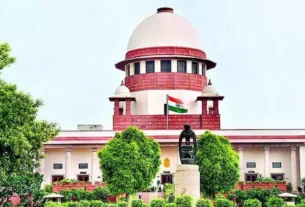The recent incident involving the leaked confidential letter from the National Board of Examinations in Medical Sciences (NBEMS) has raised significant concerns about the integrity and security of the NEET PG examination. The leak was discovered when an internal document, which was not meant for public dissemination, surfaced on various online platforms. This document contained sensitive information regarding the procedural aspects and security measures of the NEET PG exam, which is a crucial assessment for postgraduate medical education in India.
The content of the leaked letter exposes certain vulnerabilities in the examination process. It includes details about the question paper setting process, distribution logistics, and security protocols implemented to safeguard the exam’s fairness. Such information, if accessed by unauthorized entities, could compromise the sanctity of the exam by enabling potential malpractice or fraud.
The significance of this leak is profound, as NEET PG is a highly competitive examination that determines the future of thousands of aspiring medical professionals. A breach in the security protocols can undermine the credibility of the entire exam process and may lead to unfair advantages for some candidates, thus impacting the meritocratic essence of the exam.
Initial reactions from the authorities and stakeholders reflect a mix of concern and urgency. The NBEMS has initiated an investigation to trace the source of the leak and assess the potential damage. They have assured the public and candidates that measures will be taken to prevent any recurrence. Representatives from various medical associations have also voiced their apprehensions, calling for stringent actions to uphold the examination’s integrity.
This incident has sparked broader discussions on the need for robust digital security measures and transparency in the examination process. As stakeholders await the outcomes of the investigation, the focus remains on reinforcing the integrity of the NEET PG examination to maintain the trust of all involved parties.
Implications for NEET PG Exam Security : NEET PG Exam
The recent leakage of the NBEMS letter has spotlighted significant concerns regarding the security of the NEET PG exams. Such breaches hold the potential to profoundly undermine trust in the examination system. When candidates perceive that exam-related information can be compromised, the fundamental fairness of the assessment is called into question. This erosion of trust can lead to a lack of confidence among both test-takers and the institutions that rely on these scores for admissions, thereby disrupting the perceived integrity of the entire evaluation process.
More concretely, examination security threats can create uneven playing fields. If confidential information falls into the hands of a select few, it gives those individuals an undue advantage over others who have prepared under the assumption of a level playing field. This not only undermines the hard work of genuine candidates but also compromises the merit-based selection process essential for the medical profession.
The ramifications of such breaches extend far beyond immediate examination results. Aspiring medical professionals depend heavily on their NEET PG scores for their future careers. Compromised exams can lead to unfair admissions, which, in turn, can impact the quality of future medical practitioners entering the field. This chain reaction may ultimately affect public health standards, as admission based on compromised exams might allow underqualified individuals to become practicing doctors.
Despite the gravity of these issues, it is evident that current protocols and measures for ensuring exam security need to be revisited and strengthened. Existing procedures, although designed to protect sensitive data, appear to be inadequate in the face of evolving threats. Enhanced security measures must be developed and implemented to ensure that exam-related information remains confidential and secure. This may involve advanced encryption technologies, rigorous auditing of security processes, and stringent monitoring for any signs of data breaches. Additionally, raising awareness among all stakeholders about the importance of maintaining exam integrity will be paramount to uphold the credibility and trust in the NEET PG examination system.
Response from NBEMS and Government Authorities
The leak of the confidential NBEMS letter has prompted swift reactions from both the National Board of Examinations in Medical Sciences (NBEMS) and other relevant governmental authorities. NBEMS, in an official statement, strongly condemned the breach of security and emphasized the importance of maintaining the integrity of the NEET PG exam. They confirmed that a thorough investigation is underway to identify the source of the leak and ensure that those responsible are held accountable. Additionally, NBEMS assured stakeholders that it is taking all necessary measures to safeguard the exam process and prevent similar incidents in the future.
Government authorities have also taken a proactive stance, with the Ministry of Health and Family Welfare issuing a press release expressing serious concern over the security breach. The Ministry has called for stringent action to be taken against those involved and has reaffirmed its commitment to upholding the standards of the NEET PG exam. A high-level committee has been established to oversee the investigation and provide recommendations on enhancing data security and exam reforms to curb such breaches.
To reassure students and the broader community, NBEMS and the Ministry have emphasized that the integrity of the NEET PG exams remains intact. They have highlighted several immediate steps being implemented, such as enhancing encryption protocols, introducing additional checks and balances during the examination process, and increasing surveillance at all levels of exam administration. These measures aim to restore trust in the exam system and alleviate concerns among aspiring medical professionals who rely on the security and fairness of the NEET PG exam for their career progression.
In their communications, both NBEMS and the government authorities have sought to convey a message of resilience and determination. They have reiterated their commitment to upholding the highest standards in medical examinations and maintaining a transparent, secure environment for all candidates.
“`html
Future Measures and Recommendations
To address the rising concerns about the security of the NEET PG exam, it is imperative to explore and implement robust measures that ensure the integrity of the examination process. Technological advancements, policy reforms, and comprehensive oversight mechanisms play a critical role in this endeavor. By integrating these elements, educational authorities can deter potential breaches and maintain the credibility of the exam system.
One of the primary recommendations from cybersecurity experts is the implementation of advanced encryption protocols for data protection. Utilizing sophisticated encryption methods can significantly mitigate the risk of unauthorized access to sensitive examination data. Moreover, deploying multi-factor authentication systems for exam administrators and candidates can enhance the security infrastructure, making it harder for malicious actors to infiltrate the system.
Policy changes are equally vital to safeguard the examination process. Establishing stringent protocols for data handling and storage can prevent leaks and unauthorized dissemination of information. This includes regular audits to ensure compliance with security standards and immediate rectification of identified vulnerabilities. Education sector stakeholders advocate for the adoption of a zero-tolerance policy towards breaches, with clear consequences for perpetrators to reinforce the seriousness of the issue.
Enhancing oversight is another crucial measure. This can be achieved by forming dedicated committees to oversee the examination process, from question paper creation to result declaration. These committees should include representatives from various sectors, including cybersecurity, education, and governance, providing a multi-faceted approach to ensuring exam security. Regular training sessions for staff involved in the examination process on cybersecurity best practices are also essential.
Transparency and open communication with students and the public are paramount in rebuilding trust. Authorities should proactively share information about the measures being implemented to enhance security. This can include public reports on security audits, updates on new technologies being adopted, and clear channels for reporting and addressing concerns. By fostering a transparent environment, educational bodies can reassure stakeholders of their commitment to maintaining a fair and secure examination system.
“`





